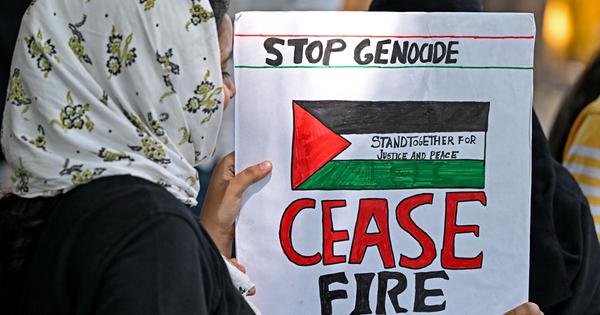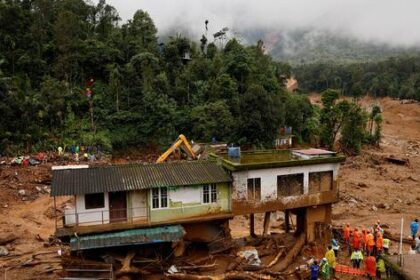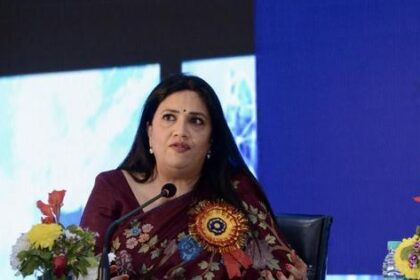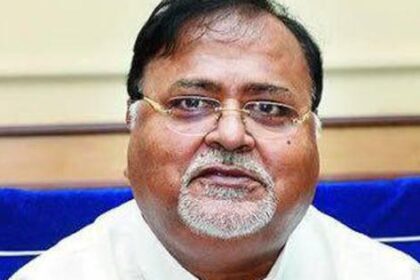Growing Hindutva rhetoric around Gaza amplifies fears of marginalization among Indian Muslims.
The ongoing conflict in Gaza has triggered intense reactions within India, particularly among its Muslim community. The Hindutva discourse surrounding Israel’s actions has become a chilling reminder of the vulnerabilities faced by Indian Muslims. Many fear that the applause for Israel’s military actions could signal a troubling shift in domestic attitudes towards them.
Earlier this month, the Rashtriya Swayamsevak Sangh (RSS) celebrated its centenary, coinciding with the two-year mark of Israel’s campaign in Gaza. Historical ties between early Hindutva ideologues and Zionism have resurfaced in this context. Figures like VD Savarkar and MS Golwalkar admired Zionism not just as a nationalist endeavor but also as a model of ethno-religious dominance.
Since October 2023, the narrative around Gaza has been manipulated by the Hindutva ecosystem, transforming it into a battleground for identity politics in India. Social media platforms have witnessed an influx of pro-Israel hashtags, including #IndiaStandsWithIsrael and #HindusWithIsrael. This surge is often coupled with dehumanizing representations of Palestinians, alongside inflammatory assertions equating Indian Muslims with groups like Hamas.
The Hindutva network has emerged as a significant force in disseminating anti-Palestinian misinformation. Platforms such as Twitter, Facebook, and WhatsApp have turned into echo chambers, where footage of devastated areas in Gaza is misrepresented as evidence of terrorist activities. Any expression of sympathy towards Palestinians has been branded as a betrayal of national interests, resulting in tangible consequences for Indian Muslims.
The increase in anti-Muslim hate speech in India is alarming, with reports indicating a rise of over 62% in 2023, particularly in states governed by the Bharatiya Janata Party (BJP). This spike in hostility has coincided with the escalation of Israel’s military actions in Gaza, further intertwining the two narratives and fueling anti-Muslim sentiment.
For many Indian Muslims, the situation in Gaza presents a haunting parallel. Demonstrating support for Palestinians now comes with significant risks. Muslim students and journalists expressing pro-Palestine sentiments online have faced suspensions, interrogations, or harassment from Hindutva supporters. Public demonstrations of solidarity have often been met with prohibitions or dispersals under the guise of maintaining public order.
The climate of fear surrounding expressions of solidarity has criminalized empathy. This moral inversion positions support for foreign military actions as patriotic, while mourning civilian casualties is deemed radical. The RSS’s long-standing initiative to frame India as a Hindu nation finds reinforcement in the imagery of Israel, which asserts exclusive claims to its land and justifies violence as an existential necessity.
The parallels drawn between Kashmir and Palestine by Hindutva supporters further illustrate this ideological convergence. Calls for India to respond to domestic conflicts in a manner akin to Israel’s tactics have surfaced, along with allegations regarding the use of Israeli surveillance technology within India.
In this digital age, the intertwining of Hindu nationalism and Zionist militarism is perpetuated through memes and misinformation. For many young Indian Muslims, navigating this hostile online environment is both exhausting and fraught with peril. The normalization of violence abroad feeds into domestic hostility, transforming each act of aggression into a metaphor for moral degradation in the world’s largest democracy.
The implications of the applause for Israel’s military actions extend beyond foreign policy; they resonate deeply within India’s sociopolitical fabric. For many Indian Muslims, the celebration of violence against another group serves as a forewarning of their own potential marginalization. The ongoing struggle for dignity is not merely national but part of a broader global confrontation with an ideology that legitimizes violence and seeks to redefine identity along civilizational lines.








